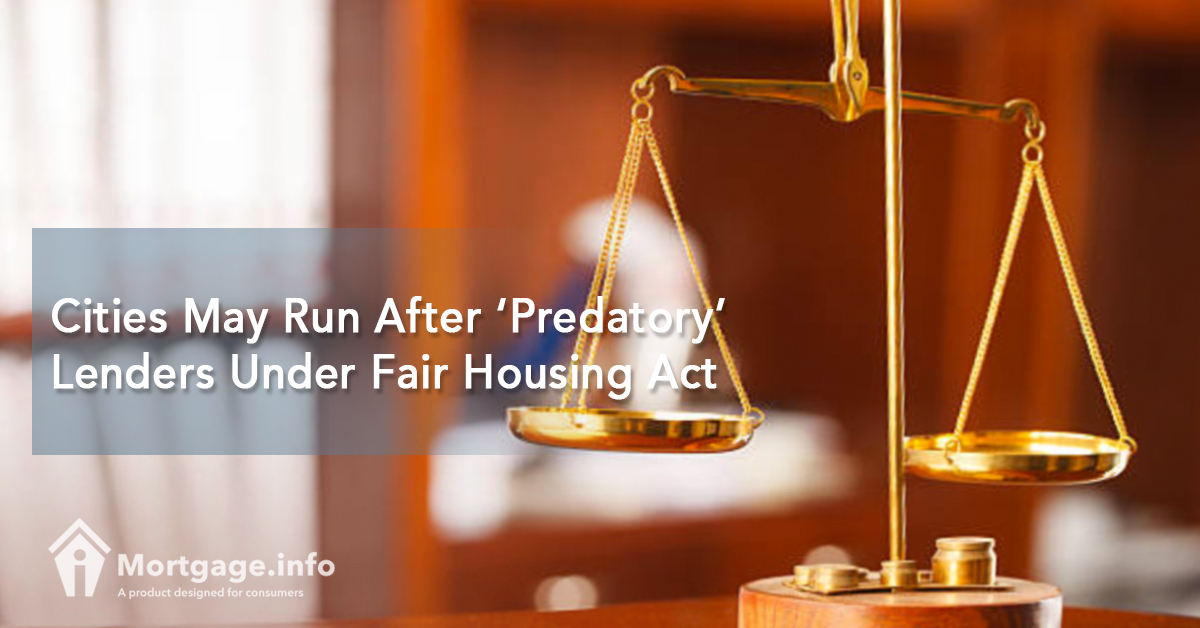The U.S. Supreme Court held that cities may sue lenders engaged in lending practices that violate the Fair Housing Act (FHA). This ruling was made in connection with the lawsuit filed by the city of Miami, Florida against Bank of America and Wells Fargo for discriminating against minority mortgage borrowers that resulted in foreclosures and low property tax revenues.
The Complaint
In its complaint originally filed in 2013, as summarized in the Supreme Court decision, the City alleged that the Banks were engaged in discriminatory lending practices that targeted African-Americans and Latinos. The two lenders, according to the City, issued riskier mortgages on less favorable terms to such minority borrowers even if they are more creditworthy than their White counterparts.
The City further claimed that the Banks induce these mortgages to default when they failed to extend refinancing and loan modification options on fair terms. These discriminatory acts led to foreclosures that turn lowered property values and reduced the City’s collectible property taxes.
In the wake of these foreclosed properties, the City has to spent on enforcement and building services “to remedy blight and unsafe and dangerous conditions.”
The Dismissal, Reversal
The District Court dismissed the City’s complaint, holding that:
- The alleged harms are economic and not discriminatory and fell outside of the zone of interests protected by the FHA, and
- There was an insufficient causal connection between the City’s alleged injuries and the Banks’ discriminatory conduct.
Even when the City amended its complaint to meet the Act’s two-year statute of limitations, the District Court did not roll back its earlier dismissal of the case.
The City appealed the decision before the 11th Circuit Court of Appeals which reversed the District Court’s ruling. The Appellate Court affirmed that the City’s injuries arising from the alleged discriminatory acts fall within the FHA’s zone of interests. It also held that the City was able to assert a proximate cause between the Banks’ conduct and the injuries it sustained. The 11th Circuit ordered the District Court to accept the City’s amended complaints.
For their part, the two bank lenders asked the Supreme Court to decide if the Appellate Court has been correct in its holding about the FHA’s zone of interests and proximate-cause.
Supreme Court Rules
The Supreme Court held that the City is an “aggrieved person” and is thus authorized to file a lawsuit under the FHA. The statute defines an “aggrieved person” as any person who (1) claims to have been injured by a discriminatory housing practice; or (2) believes that such person will be injured by a discriminatory housing practice that is about to occur.
According to the Supreme Court opinion written by Justice Breyer, “The City’s claims of financial injury are, at the least, ‘arguably within the zone of interests’ the FHA protects.” The high court used the case of the Village of Bellwood as precedent, with the claims of the Village similar to that of the City.
Nevertheless, the Supreme Court found that the 11th Circuit erred in its ruling on proximate cause based on the theory of foreseeability. “…to establish proximate cause under the FHA, a plaintiff must do more than show that its injuries foreseeably flowed from the alleged statutory violation,” Justice Breyer wrote. The Supreme Court thus remands the issue to the Appellate Court to draw the boundaries of the proximate-cause.
As Reuters pointed out, the opinion means a partial victory for both camps. For the City, its legal standing to file a suit under the FHA was affirmed subject to presenting more evidence to prove that its injuries were linked to the alleged discriminatory lending. For the Banks, it means a second-go at defending themselves against the City’s claims.

